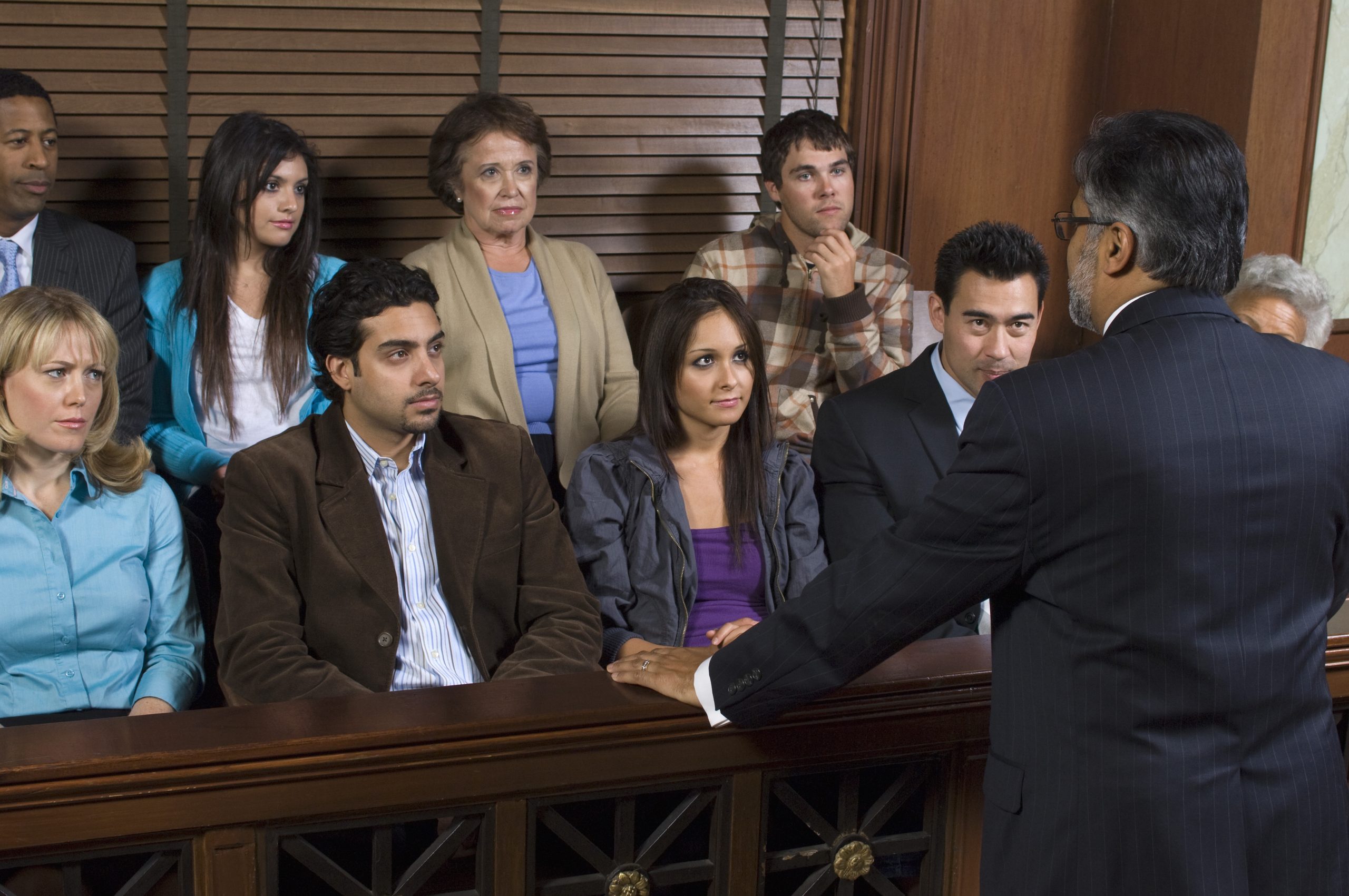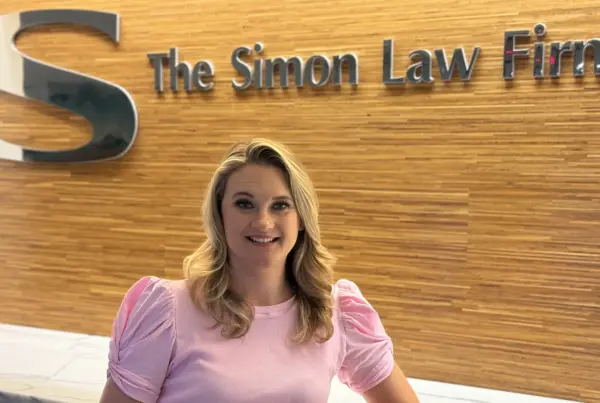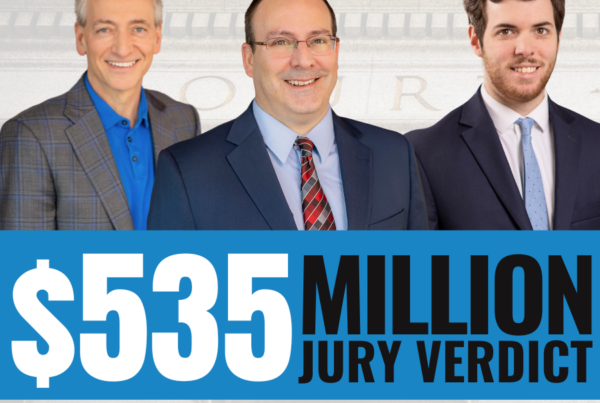Most law schools don’t offer training focusing on the emotions of attorneys. Instead, law students are encouraged to be analytical and factual, as though emotions can be “set aside.” We are taught a simple game plan: the facts plus the law equals the verdict. Emotions are mostly portrayed as a complicating distraction for judges and trial lawyers. This approach to legal education is unfortunate for many reasons. It is the legal system’s version of “Descartes’ Error,” which is described in more detail throughout this article.
A deeper understanding of our own emotions allows us to up our game as trial attorneys. That is the position of Rick Friedman, one of the most successful and thoughtful attorneys in the United States. Rick is a member of the Inner Circle of Advocates and the author of many excellent books focusing on trial advocacy. Rick’s most recent book is The Way of the Trial Lawyer: Beyond Technique (2020). Rick’s book is a clinic on how to get in tune with your emotions and harness their power to A) get out of your own way, and B) become a better advocate on behalf of your clients. In a phrase, Rick is urging us to undertake the quest is to become “truly spiritual warriors.”
The first step (page 56) is to embrace your own emotional complexity as something you carry where ever you go, including those times when you enter the courtroom:
Many people— especially lawyers—believe that self-compassion is dangerous. They instinctively feel that if they allow themselves to feel their own pain, to recognize the hardships they have faced or are facing, they will be overwhelmed by their own emotions of grief, sadness, fear, or anger. Better to keep those suppressed, so the thinking goes. This is natural, especially for those who have experienced serious hardships in life. But what this line of thinking ignores is the enormous amount of energy devoted to keeping these feelings suppressed. If instead, we experience those feelings again, and examine them, the feelings begin to lose their power over us; we free up our own energy to use in more productive ways.
According to Rick Friedman (page 15), it takes serious work to get in touch with who we really are, but doing this work protects us at those times we are tested by unforeseen circumstances in the courtroom, especially when the fear of failure rears its head:
[Lawyers who are willing to live up to their ideas] are not afraid to look inward and acknowledge a mix of emotions and motivations. They are willing to explore and embrace their own complexity. Having done that hard work, they cannot be cowed or shamed by their opponents, inside or outside of the courtroom.
It is important to distinguish genuine emotion for cheesy histrionics. Friedman discourages the latter, characterizing such displays as uncareful and unsophisticated (page 76):
Many lawyers believe that emotion in the courtroom is cheesy. We have all seen lawyers use emotion in a ham-handed way—pounding the table in over-the-top anger or disgust, or practically begging their clients to cry on the witness stand. Such displays often (usually?) come across as histrionic, manipulative, and phony.
Friedman assures us that being in tune with one’s emotions most definitely does not cause “soft-hearted, mushy thinking.” It’s the opposite (page 92). “Putting our attention on feelings forces our intellect to become sharper and more discerning.” Looking inward can help buffet us when times are tough in the courtroom. Looking inward gives us equanimity when we most need it. If we fail to engage with our affect, our un-synced emotions will cause us to be distracted and unfocused at the most inopportune times.
In order to be effective attorneys, we need to know who we are, deep down. As human beings, we are creatures immersed in emotion. How you work with your emotional side is critical because jurors can see through you (page 72):
[W]e can observe from our own lives that, in truth, we are feeling creatures. It is feelings and emotions that give meaning to our lives. It is feelings and emotions that allow us to connect with others. It is feelings and emotions that allow us to persuade others.
Again, some of us have been urged to adopt a self-portrait that is a flattened mechanical cartoon of what it means to represent others in court. The intellect and logic are not enough, however. Our intellectual skills need a lot of help to navigate wisely. Lawyers who are willing to look inward at their unwieldy-seeming emotions “do not hide from their hearts, but instead, seek to lead with their hearts.” As advocates, we are carrying an emotional load that oftentimes seems heavy and seems to take on a life of its own. If we try to deny this core of who we are as human animals, we will complicate things, which will sap our energy and focus (p. 74):
[W]hile we enjoy certain feelings, many of us are also afraid of our feelings—the ones we experience as unpleasant. We are afraid they will weaken or overwhelm us. Feelings of fear, sadness, anger, rejection, embarrassment, shame, and guilt are some of the feelings most of us experience as unpleasant—even if they are familiar. Most of us would prefer not to feel these emotions. But as lawyers, if we have not explored these emotions within ourselves, we will have difficulty connecting with our client, judge, or jury. How can we talk about our clients’ sadness when we have not learned to be comfortable with our own?
Being in tune with one’s emotion allows us to sprout in critically important ways. Friedman urges that by leading with our hearts we cultivate the following critical qualities and many more: compassion, connectedness, courage, confidence, patience, playfulness and persistence.
Doing this inner work is not easy. It takes lots of practice. But once attorneys go to this fear, this supplies us with solid answers to these three critical questions every time we enter the courtroom (page 77):
- Why am I standing in this courtroom at this time with this client?
- How does this moment serve my values and my destiny?
- How does it nourish my heart?
The Way of the Trial Lawyer is comprehensive, vulnerable and deep, offering readers page after page of encouragement and insight from one of the most successful and thoughtful attorneys to enter a courtroom.
Rick Friedman’s recognition of the critical importance of emotions is very much in tune with current thinking by cognitive scientists. Increasingly, over the past few decades, old models of cognition that failed to consider the power and ubiquity of emotions have been found to be lacking. Writers and scientists challenging the old models include Daniel Kahneman whose long litany of cognitive fallacies and heuristics have reshaped how we see ourselves. Kahneman’s “prospect” theory, for example, has severely crimped economists’ “objective standard” of “homo economicus.” We are much less logical than we’d like to believe. Even our understanding of how words carry meaning is undergoing a sea change. Mark Johnson and George Lakoff, best known for their work on conceptual metaphor, have made a strong case that meaning is thoroughly embodied. The past few decades have not been kind to the idea that a word can have a singular “objective” word meaning independent of the human brains and emotion-permeated bodies that use that word.
Consider also the many insights of Daniel Goleman, found in his 1995 bestseller, Emotional Intelligence. His five components of “emotional intelligence” (self-awareness, self-regulation, social skill, empathy and motivation) are key to one’s ability to succeed as an attorney. Moral Psychologist Jonathan Haidt has painted each of us as cohabited by two personas. This moral intuitionist approach posits that our first (and most dominant) persona is a big elephant (“automatic processes, including emotion, intuition”). The second persona is a much less influential lawyer-like elephant rider, who is skilled at fabricating post hoc explanations for whatever the elephant decides, including dishing out reasons to convince others. Haidt’s approach, bolstered by many experiments, is that “Intuitions come first, strategic reasoning second.” In sum, “The Emotional tail wags the rational dog.”
Neuroscientist Antonio Damasio has delivered primary research demonstrating that emotions must, of necessity, permeate everything we say and do. In Descartes’ Error (2005), Damasio turns Descartes’ model of human beings upside down (p. 128):
The apparatus of rationality, traditionally presumed to be neocortical, does not seem to work without that of biological regulation, traditionally presumed to be subcortical. Nature appears to have built the apparatus of rationality not just on top of the apparatus of biological regulation, but also from it and with it.
Failure to see this extensive integration of thought and emotion, Damasio writes, is “Descartes’ error.”
What are emotions? Damasio distinguishes emotions from feelings.
In everyday language, we often use the terms interchangeably. This shows how closely connected emotions are with feelings. But for neuroscience, emotions are more or less the complex reactions the body has to certain stimuli. When we are afraid of something, our hearts begin to race, our mouths become dry, our skin turns pale and our muscles contract. This emotional reaction occurs automatically and unconsciously. Feelings occur after we become aware in our brain of such physical changes; only then do we experience the feeling of fear.
Rick Friedman’s use of the term “emotion” lines up well with Damasio’s: emotions are not clearly conscious or easy to access. Being a trial lawyer is thus not completely and accessibly conscious, or easy.
Damasio makes the strong claim that not only does the intellect interweave complexly with our emotions. He further determined that pure rationality is helpless to make decisions. Based on his analyses of brain-damaged patients, Damasio has determined that rational thought, devoid of emotion, paralyzes us. Emotions are a necessary condition to allow rational decisions to be made, even purely “logical” decisions. Damasio writes: “Rationality” describes the way brain-damaged people make decisions. Even “our most refined thoughts . . . use the body as a yardstick.”
In Damasio’s view, our entire experienced world is filled with emotional peaks and valleys that constitute our map of what matters to us. Without this all-encompassing emotional map, no amount of analytical intelligence, not even a great intelligence, has the capacity to care about the world enough to employ logic or reasoning abilities. In short, if Star Trek’s Mr. Spock went to law school, he would make a terrible lawyer because he would be at a loss to care about anything. He would further lack the capacity to know what anyone else cares about. Even Spock’s great knowledge base and his sense of logic would leave him at a complete loss. He would not know what to do next without a biologically-based emotion-sculpted landscape to push and pull him in various directions related to survival.
Rick Friedman’s advice thus appears well-aligned with state-of-the-art science. Rick recognizes that attorneys (and everyone else) are thoroughly and inextricably emotional beings. We have no choice, no matter how hard we work, to “set our emotions aside” so that we can merely be logically brilliant. We invite anyone interested to read Friedman’s The Way of the Trial Lawyer: Beyond Technique (2020). His book is a unique resource for trial lawyers who seek to up their game (as the title says) beyond technique. Rick offers this summary of his overall project (at page xxiii):
There is a way to effectively participate in this process while claiming our human birthright of compassion, courage, and love; while living with purpose and integrity; while growing health and strength in ourselves and those around us. But it isn’t easy. It is the way of the trial lawyer.
To hear Rick Friedman discuss his many ideas on how to attain excellence in the courtroom, check out Episode #221 of The Jury is Out, where he is the featured guest.







